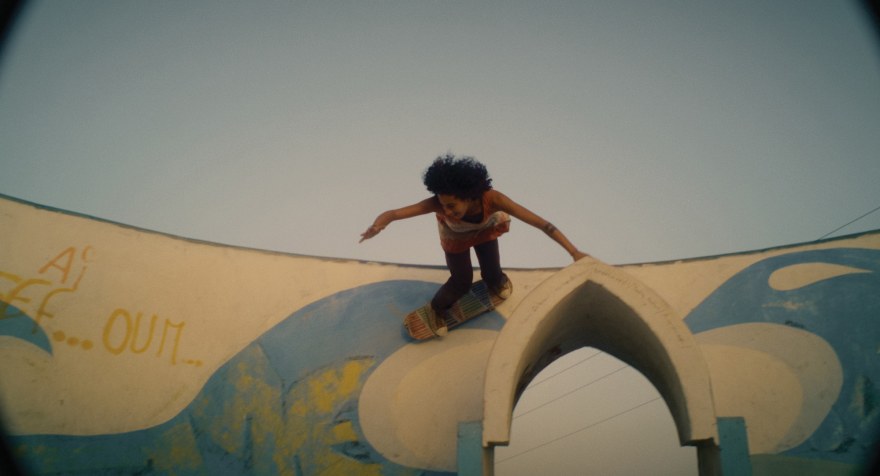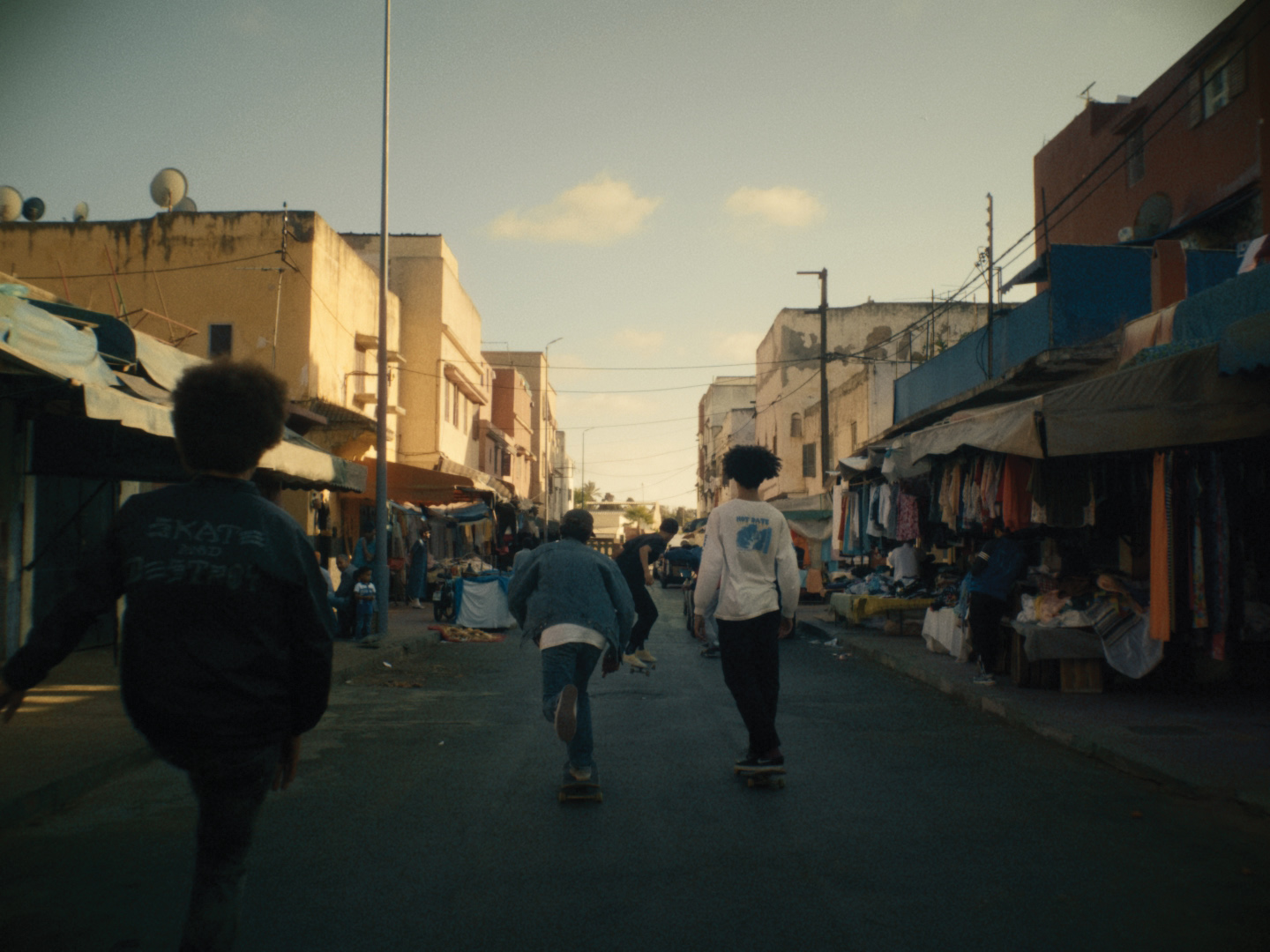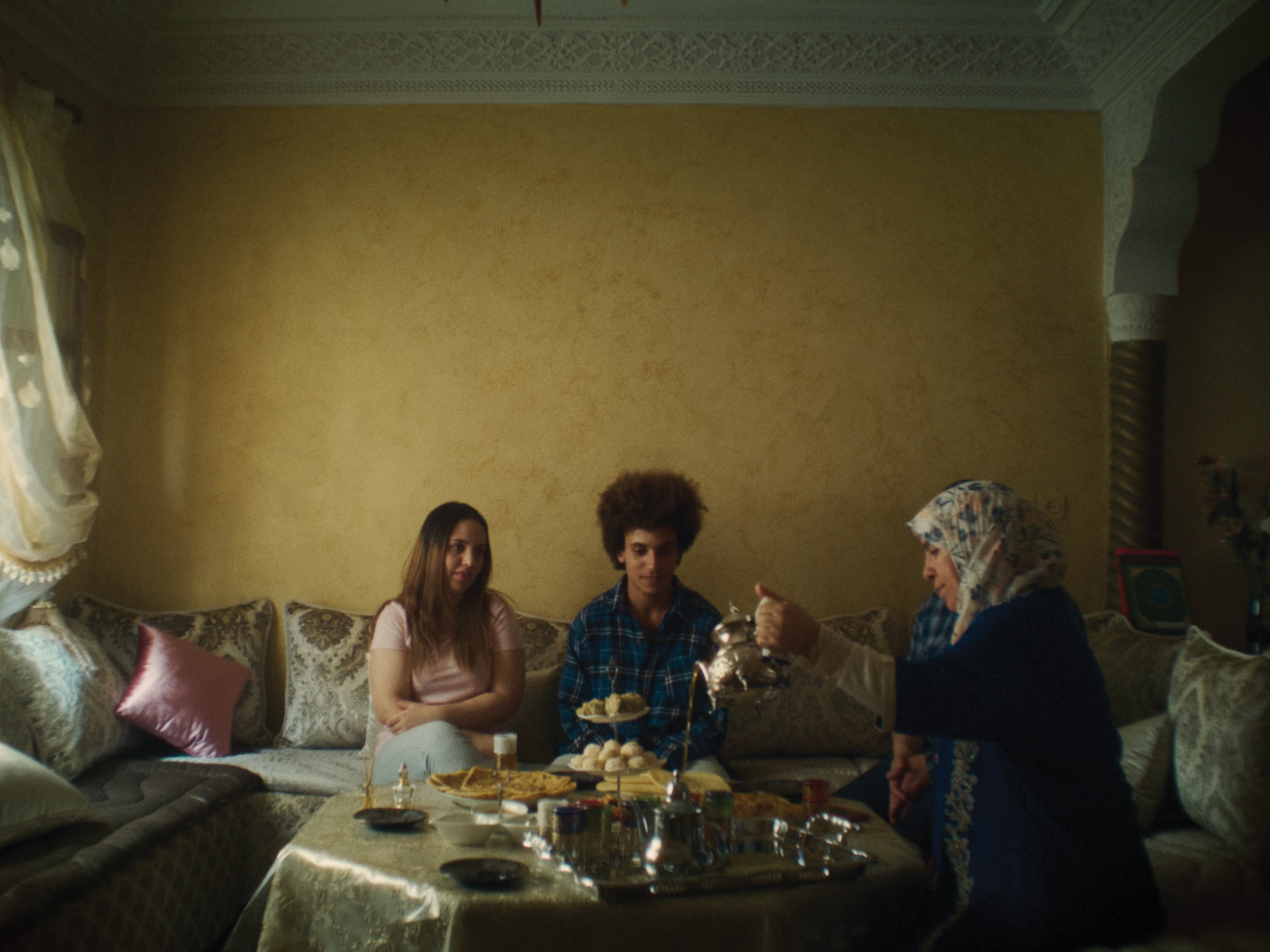Tea time with Desert Dogs
Interview with Samuel Morris, director of Desert Dogs
How did you discover this world and what drove you to make a documentary about it?
I started skating at a very young age. There were always two realities in my life. On one hand it was my family, on the other hand it was my great passion, skateboarding. These two realities rarely blended, because skateboarding was my way of rebelling. My way of expressing myself, of finding like-minded people. Something that I had for myself. My father grew up with M’Bark, an adopted boy from Morocco. He was like a brother to my father. Unfortunately, M’Bark died at a young age and I never got to know him. What remained, however, was an interest of my family in Moroccan culture, and as a result we often travelled to Morocco as a family. I remember that we often went there, but I myself was not very interested in getting to know the culture. All I wanted to do was skateboarding. And you couldn’t do that in Morocco. However, the Moroccan world always remained a bit closed to me, I could never really find access to the culture, it always felt close, but still distant from me and my own world. Two years ago I was reading a skateboard magazine and I saw a young Moroccan holding a skateboard. I thought to myself: “This can’t be real. I have been to Morocco several times and have not seen a single skater in Morocco.” – So of course I had to follow up on that. I called my friend / DOP Fabio Tozzo, who is also a skater himself, and we went to Morocco shortly after to see if there really was a skateboarding scene. Surprisingly there was. And the skate scene was pretty big and very open-minded. So finally Morocco opened up to me. The culture, the people, everything.
How did you approach the young people? Were they quite happy to take part?
So first we just went to see if there was a skateboard scene at all in Morocco. We went to the capital Rabat and to Taghazout, where apparently a lot of skaters go because of a new skate bowl. We met several skaters there, all of them were very open and we exchanged Instagram names (This is how you do it in 2020). Eventually the second time we went together as a three-person film crew, but we didn’t know who we wanted to film. We only knew that we would like to portray the uprising Skateboarding culture in Morocco. The crew was me, Fabio, Marco (a skateboarding friend, who was responsible for the sound) and Yassine, our local fixer / producer. We had the contact of Ibrahim, who let us stay with him. When we met his family and he showed us his world, we immediately knew that Ibrahim was our man. He was very open. Aya, on the other hand, was very closed at the beginning. She didn’t have a smartphone and was rarely reachable via Instagram. When we were in Taghazout, we had to search for her first. After two days of searching, we finally found her, she was very distant at first, but after we spent some hours / days with her, she opened up and we became friends.
How straightforward was the shoot in Morocco?
It was complicated to say the least. But we were lucky to have Yassine, a local producer, who was with us all the time and had the necessary papers to allow us to film. Often people came and there were big discussions, but Yassine was able to keep trouble away from us. If it wasn’t for Yassine, we could have handed in all our equipment at the airport. We were also often confronted with the police.
Can you tell us more about your choice of soundtrack?
We were lucky that Gordian Gleiss, a very gifted film musician, composed the soundtrack for the whole film. He skillfully combined the oud, a side instrument, with modern elements. For me, it was a pendant to our film. Modernity mixed with the past. There are two additional tracks that we licensed additionally. These two were used in the skate edit parts.
What sorts of subjects would you like to tackle next?
I’m in the process of writing a feature film (What else, right?). I like to talk about topics that show people a new perspective of a subject. A film can show new angles to a subject, a topic. Someone who doesn’t know much about a certain subject will eventually understand it after seeing the film. I like that a lot. And that’s what I want to pursue with my filmmaking. Changing or even creating perspectives.
What do you think the future holds for short films?
A lot. Short films are the perfect tool for filmmakers to try things out. However, they are also the perfect tool for the viewer to gain brief insights into new perspectives. These brief glimpses can occasionally spark something in a person that can then accompany the person for a longer time. That’s why I love short films. And that’s why short films should and must continue to exist.
If we were to go back into lockdown, what cultural or artistic delights would you recommend to alleviate our boredom?
Well, it is already happening, no? – We’re going back to lockdown. When the economy collapses, the jobs, the reason to get up in the morning, or the work at home disappears. What remains then? The art. The culture. Music. Movies. Books. Art. Friends. Love. Things that give us the freedom, to feel outside of this isolation. Or at least something that brings our mind out of isolation. Something that shows us new perspectives, gives us hope, makes us understand. If all of these things ceased to exist, we would be locked up forever. So I would recommend sitting down and absorbing something that interests you. Or think of something that you would like to express. And then just express it.
Desert Dogs is part of International Competition I10.










